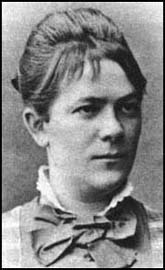International Women’s Day – Clara Zetkin
 All over the world, 8th of March is celebrated as International Women’ day. In the past many women have struggled and faced many difficulties to achieve the rights of equality and freedom, we enjoy in this world today. This is the story of one such pioneer who led the flame for us.
All over the world, 8th of March is celebrated as International Women’ day. In the past many women have struggled and faced many difficulties to achieve the rights of equality and freedom, we enjoy in this world today. This is the story of one such pioneer who led the flame for us.
Clara Zetkin was born as Clara Zeissner in Saxony, Germany on 5 July. A communist and political activist, she was also an ardent campaigner for women’s rights and helped create the first International Women’s Day (IWD) on 8 March 1911.
Clara was trained as a teacher at Leipzig Teachers’ College for Women. During her studies, she became involved with the women’s and labor’s movement. She joined the Social Democratic Party in 1878. Due to Bismarck’s ban on socialist activity, Zetkin went into self-imposed exile in Zurich and Paris during the 1880s. Born at a time of great social turbulence and crisis, IWD inherited a tradition of protest and political activism. In the years before 1910, from the turn of the 20th century, women in industrially developing countries were entering paid work in some numbers. Their jobs were sex segregated, mainly in textiles, manufacturing and domestic services where conditions were wretched and the wages were worse. Trade unions were developing and industrial disputes broke out, including among sections of non-unionized women workers. In Europe, the flames of revolution were being kindled. Many of the changes taking place in women’s lives pushed against the political restrictions surrounding them. Throughout Europe, Britain, America and, to a lesser extent, Australia, women from all social strata began to campaign for the right to vote. There were many different perspectives on why this issue was important and how to achieve it.
Clara Zetkin (Leader of the ‘Women’s Office’ for the Social Democratic Party in Germany) tabled the idea of an International Women’s Day. She proposed that every year in every country there should be a celebration on the same day – a Women’s Day – to press for their demands. The conference of over 100 women from 17 countries, representing unions, socialist parties, working women’s clubs, and including the first three women elected to the Finnish parliament, greeted Zetkin’s suggestion with unanimous approval and thus International Women’s Day was the result.
The very first International Women’s Day was launched the following year by Clara Zetkin on 19 March (not 8 March). The date was chosen because on 19 March in the year of the 1848 revolution, the Prussian king recognized for the first time the strength of the armed people and gave way before the threat of a proletarian uprising. Among the many promise he made, which he later failed to keep, was the introduction of votes for women.
In 1913 International Women’s Day was transferred to 8 March and this day has remained the global date for International Women’s Day ever since. During International Women’s Year in 1975, IWD was given official recognition by the United Nations and was taken up by many governments. International Women’s Day is marked by a national holiday in China, Armenia, Russia, Azerbaijan, Belarus, Bulgaria, Kazakhstan, Kyrgyzstan, Macedonia, Moldova, Mongolia, Tajikistan, Ukraine, Uzbekistan and Vietnam. Zetkin died in Archangelskoye, Russia in 1933.
The information given in this article is from the following references.
http://www.wikigender.org/index.php/Clara_Zetkin
http://www.isis.aust.com/iwd/stevens/origins.htm
http://www.internationalwomensday.com/first.asp
http://www.spartacus.schoolnet.co.uk/GERzetkin.htm
Check out Pandita Ramabai: Founder of Mukti Mission
Hi Folks.
I’m researching Clara Zetkin’s reception and influence in British politics (1889-1933), and would be pleased to learn of any references to her (positive or negative) in any biographies, memoirs, diaries, correspondence, etc., of British figures.
She was involved with the Second and Third Internationals, and founded the International Socialist Women’s Movement; she communicated with the SDF, the BSP, the Women’s Labour League and the ILP, and was in contact with Eleanor Marx-Aveling, Dora Montefiore, Margaret MacDonald, Fenner Brockway, J. T. Murphy, Margaret Bondfield, Marion Phillips and Mary Longman. I’d be interested in references to Zetkin’s contact with these people and groups – but also any additional contacts with Britons (or emigres living in Britain, such as Friedrich Engels, Karl Kautsky, Eduard Bernstein, etc.).
Anything – no matter how minor – would be a great help. Email me on H_G_W_@hotmail.com with your leads. Ta.